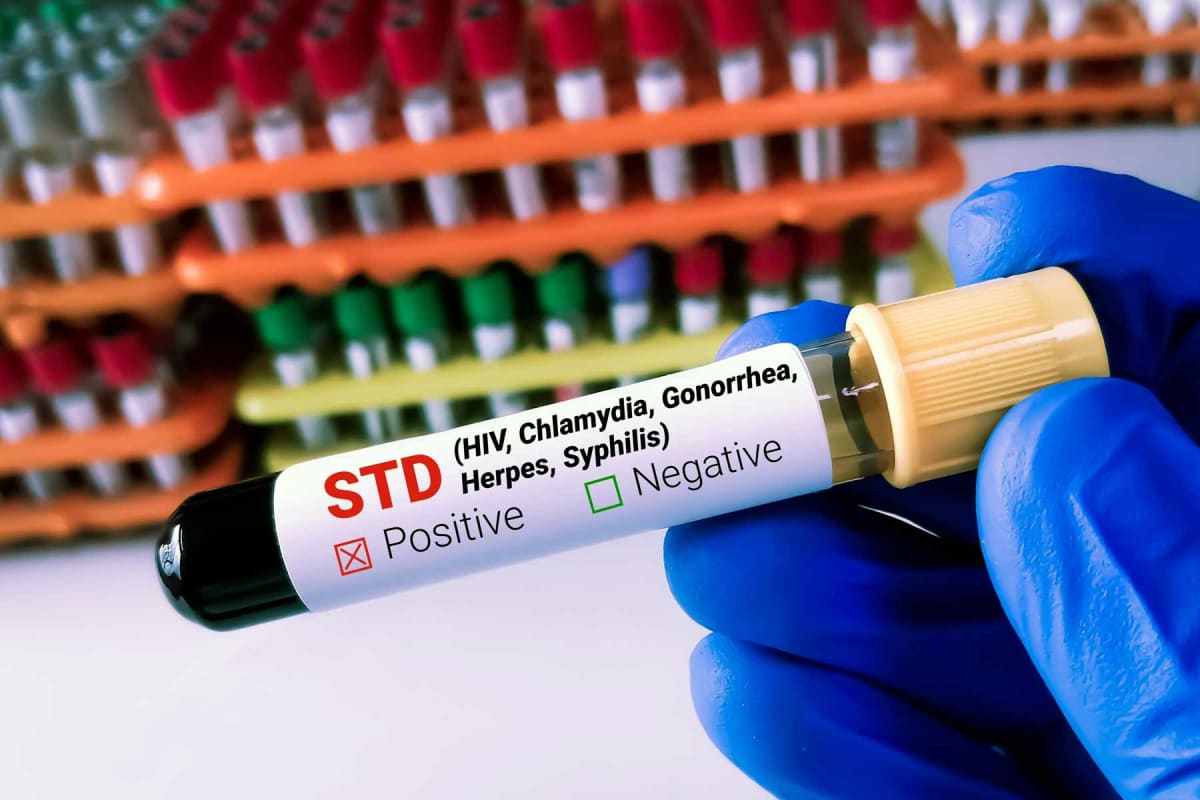
How much does STD testing cost?
How much does STD testing cost?
$30 – $185 average cost to test for a single STD
$125 – $400 average cost for multi-STD screening panel
STD testing cost
STD testing costs $30 to $185 to test for a single sexually transmitted disease or infection. A screening panel that tests for multiple STDs costs $125 to $400, depending on the provider, your location, and the number of STDs tested for. STD testing is available at Planned Parenthood, clinics, and labs or via at-home test kits.
| Test provider | Average cost to test for a single STD* | Average cost for multi-STD screening panel* |
|---|---|---|
| Planned Parenthood | $30 – $185 | $125 – $250 |
| Quest | $45 – $99 | $139 – $269 |
| FastMed | $30 – $60 | $229 – $400 |
| CVS MinuteClinic | $59 – $139 | $139 – $349 |
| Everlywell | $55 – $69 | $129 – $169 |
| HealthLabs | $45 – $139 | $139 – $349 |
| LetsGetChecked | $89 – $99 | $149 – $249 |
| MyLAB Box | $79 – $99 | $169 – $399 |
| PrioritySTD | $59 – $139 | $198 – $309 |
| STDcheck | $45 – $59 | $139 – $259 |
*Without insurance
Most providers offer testing for a single sexually transmitted disease (STD), also called a sexually transmitted infection (STI). They can also perform a screening panel that tests for multiple types, including some or all of these common STDs:
Chlamydia
Gonorrhea
Herpes (HSV-1 & HSV-2)
Human papillomaviruses (HPV)
Hepatitis A
Hepatitis B
HIV (Type 1 & 2)
Mycoplasma genitalium (MG)
Syphilis
Trichomoniasis
Bacterial vaginosis (BV)
STD / STI test cost factors
The following factors affect the amount you'll pay for STD testing:
Insurance: Most health insurance plans cover STD testing at in-person clinics, your doctor's office, or a Planned Parenthood health center. Coverage and co-pays vary by plan. Most at-home test kit providers don't accept insurance but allow payment via HSA and FSA cards.
Which tests you need: Testing for a specific, single STD costs less than a full screening panel that tests for multiple STDs.
Where you get tested: STD testing at a doctor's office or clinic may cost more due to additional office visit fees. At-home STD test kits offer a convenient and confidential option but often cost as much as in-person testing.
Your income: Some test providers, like Planned Parenthood, charge a sliding scale fee based on your income.
What is STD testing?
STD testing involves screening for sexually transmitted diseases (STDs) and infections (STIs) that can spread through vaginal, anal, or oral sex. These tests detect infections that often have no initial symptoms. Early diagnosis and treatment are crucial to prevent complications and protect sexual partners.
How are STD tests done?
Common STD tests involve taking a sample of urine, blood, or a swab from the throat or genital area. The testing procedures are generally quick and minimally invasive. If there is a visible sore, bump, blister, or lesion, the test may involve swabbing to collect cells or discharge from the affected area.

How long do STD tests take?
STD test results are typically available within a few days, depending on the type of test. Rapid HIV tests provide results in about 30 minutes. Ask the doctor or technician at the testing center about the expected timeframe for your test.
Can you get an STD test at home?
Yes, many companies provide at-home STD test kits. These kits allow individuals to collect samples in the privacy of their own homes and send them to a laboratory for analysis. While at-home tests offer convenience and discretion, it's important to follow instructions carefully to ensure accurate results.
Does insurance cover STD testing?
Many insurance plans cover STD testing as a preventive or diagnostic service, especially if medically necessary due to symptoms or exposure. Check with your insurance provider for more information about your coverage and any potential out-of-pocket expenses associated with testing.
Do they test for STDs when donating blood?
Blood donation centers routinely screen donated blood for certain infections, including HIV and hepatitis. While these tests help to ensure the safety of the blood supply, they are not comprehensive for all STDs. Individuals should get independent STD testing for a complete assessment of their sexual health status.
Where to get an STD test
You can get an STD test at most healthcare facilities, including your doctor's office, urgent care centers, Planned Parenthood, community clinics, student health centers, and some pharmacies and labs. Online lab test providers like Everlywell, MyLabBox, and LetsGetChecked offer at-home STD testing kits.
When to get an STD test
If you are sexually active, the Centers for Disease Control (CDC) recommends getting tested for STDs every year to protect your health. You should also consider getting tested if:
You had unprotected sex.
You think your partner may have an STD.
You've had a new sexual partner since your last STD test.
You think you've been exposed to HIV within the past 3 days.
You've shared drug injection equipment.
You're experiencing symptoms.
It's important to remember STDs don't always cause symptoms. If you're sexually active, get tested regularly, as you may have contracted an STD without realizing it.
Questions to ask a healthcare professional
Discuss your sexual history and risk factors with a healthcare professional to determine whether you should be tested for STDs. Ask these questions:
Which specific tests do you recommend for me?
How accurate are the tests?
How much will the tests cost?
Are there any other fees I may have to pay?
Will my insurance cover the cost of STD testing?
When will I get the results?
What are the treatment options if my test results are positive?
Do I need any follow-up care or additional screenings?
How often should I get tested for STDs?